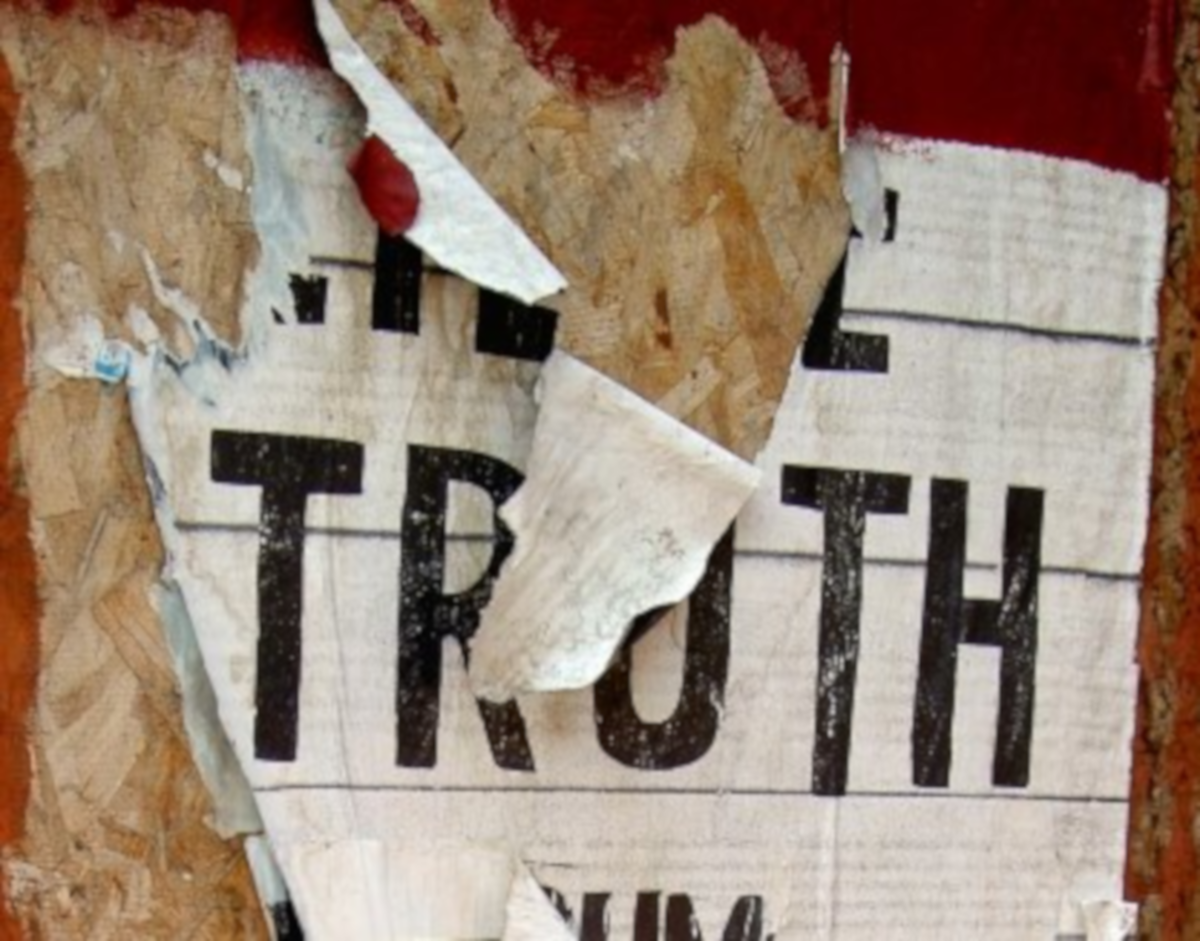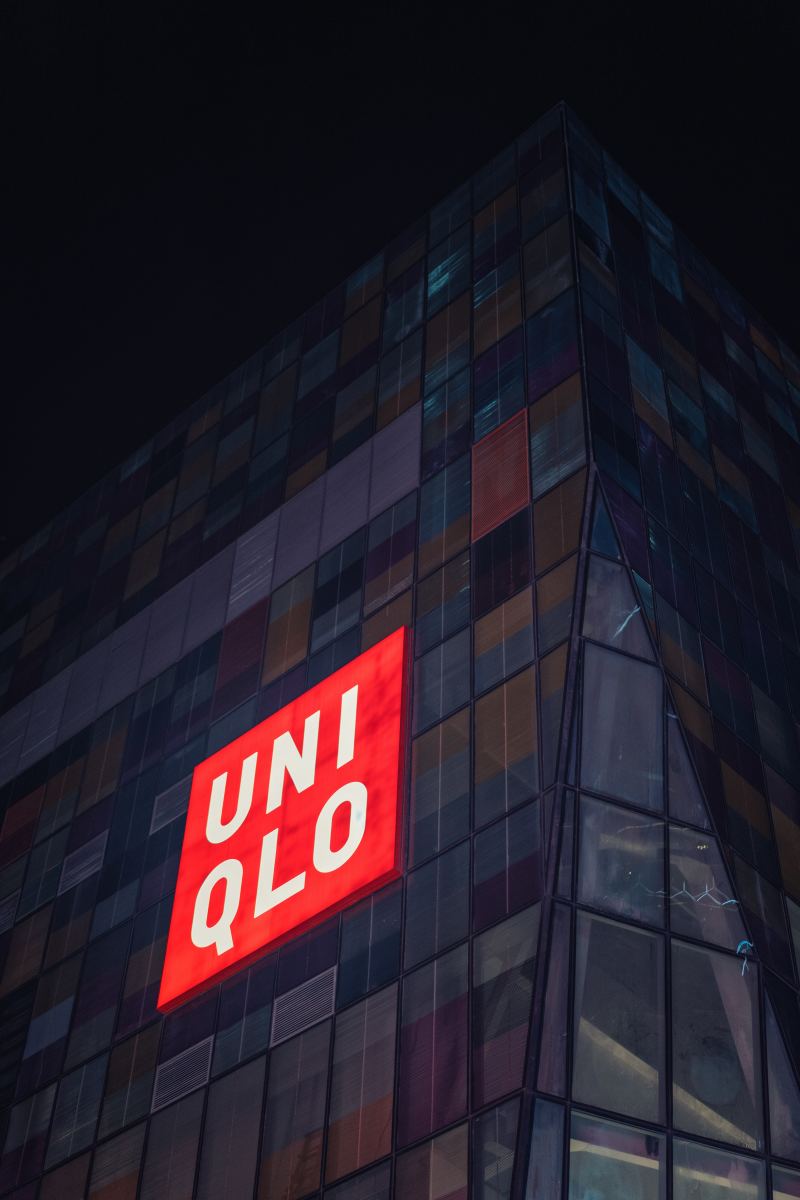THINKING ALOUD (BusinessLaw) BUSINESS ETHICS: Moral Hazard
BUSINESS ETHICS: Moral Hazard
Risks Abound for All & Sundry
Writer: Chén Róng
This article explains the writer's thought on the term ‘moral hazard’ as used in everyday English Language and its various applications when used as a business legal term. A clear understanding of business ethics is now important for the long term prosperity of businesses, whether they are conglomerates or less conspicuous family-owned companies.
Let us look at the concept in the context of the world of business. Like the word ‘corruption’, whether a person or a country is said to be corrupt is a matter of who says it; and whether he/she chooses to give it a narrow or broad definition. In other words, the term can be massaged to suit the speaker for his intended situation. Let’s begin by analysing the term “moral hazard’. It has its origin in insurance contracts; if insured homeowners have no deductible in the fire insurance policy, they will be less diligent in keeping their dwelling place safe and clear of fire prone materials. Hence, a deductible clause serves as a form of self-insurance by insured against moral hazard risks that he can afford to be careless as he incurs no financial loss in the event of his negligence.
Today, the term has taken on a life of its own to include economic situations; people taking on extraordinary risks if they do not have to suffer loss, that is, getting financial or economic gains with no punishable loss. In simple English, it is misaligned risks-and-rewards. Nevertheless, the Merriam-Webster dictionary has other ideas; it explains the word ‘moral’ as ‘relating to principles of right and wrong in behaviour’ and ‘hazard’ as a ‘source of danger’. So, the practice of relentlessly dishing out free cigarettes by a tobacco manufacturer to own employees may be seen as embracing an ethically dangerous (or moral hazard) practices. Employees will smoke more cigarettes resulting in poor health than they normally would if they have to pay for their puffs. Confused? We will begin our discussion on the subject of Insurances and then move on to analyse risks involving other economic stakeholders.
-
Moral Hazard Risks involving insureds
I. Travel insurance is a ubiquitous type of insurance. An insured person will be covered for named events. Running the gamut of insured events from lost luggage, flight cancellations and accidents (accidental death and disabilities) to medical evacuation will be covered. However, attached to every policy is a list of exclusions which, in truth, is the Moral Hazard Clause; specific hazardous events excluded to mitigate moral hazard practices. Some exclusions are: self-inflicted injuries; pre-existing conditions; engaging in hazardous sporting activities; civil disturbances; travel to specific countries such as Mali and Syria where civil wars are now raging like wildfire, etc., etc.
All's not lost. The exclusion clause helps insurance company to lower risk levels. The insured person receives the benefit of paying a lower premium. Insuring against a moral hazard event encourages risk taking behaviour and it should never be agreed upon by the parties. Paradoxically it is a regular occurrence. Insurance companies happily ignore specific hazardous situations in return for an additional premium paid by an insured person! Is this not a moral hazard practice? Unfortunately, the term is negotiable. It is not cast in stones. It mimics the behaviour of a chameleon. Its body changes colour to suit the business environment. Besides, in economic terms, it refers to risks that people are prone to take if they do not have to bear the consequences of loss. So, if people are bearing the consequences upfront by paying an additional premium, the question of moral hazard risks does not arise. The industry's understanding of the term takes on a new meaning. It adapts itself to changed circumstances. Money talks! Such a flexible approach is confusing to all concerned. Hold it! Today's insurers will justify their practice - by keeping to basic services they remain competitive. If an insured person wants more than bare essentials, it can be topped up to cover more risks. He pays an additional premium.
II. Keeping to the subject of insurance - motor insurance - we shall talk about a story published a few months ago. A major insurance company declined to renew the insurance for the family car of a customer; his daughter drove recklessly and got into an accident. The insurance company - a front runner in the business -- declined to renew the insurance on ethical ground described as 'market practice'; a claim not supported by industry players. The insured, in this case, did bear the consequences of paying undisclosed sums under the Excess Clause and one under the young-driver category; lost a no-claim bonus - a high percentage discount he chalked up over many years. What raised an eyebrow was this: the insurer did not inform customers under a specific hazards exclusion terms that policy renewal is not to be taken for granted if the insured vehicle was driven dangerously. Is it not a moral hazard practice? A leading insurer is cherry picking! AIt leaves a customer with an excessive renewal fee when he starts anew with another insurance company. Ironically, the insurer's ethical claim, which aims to punish by asserting a moral principle, did not hurt the perpetrator (the daughter) who walks away unscathed - a double dose of moral hazards.
III. iii. A close relative of an insurance policy is that of a financial derivative contract. A credit default swap (CDS) is one such instrument where a set of future cash flows are agreed upon to be exchanged between two counter parties at set dates – akin to another derivative product, the life insurance contract. While both are used for legitimate insurance purposes, there is a clear distinction between the two. A life insurance policy requires an assured to have ‘insurable interest’; a rule that allows a person to buy insurance to protect him/her against financial loss, not to enable him/her reap a windfall from a random event. However, such a rule does not apply to financial derivative contracts (supposedly credit insurance policies) and, therefore, a person buying a derivative can disguise gambling as a legitimate insurance – a moral hazard. The failure to apply this rule brought about a global financial crisis when naked CDS were rampantly used to gamble on the failure of debtors rather than to insure against it. Just anyone can buy naked CDS from banks - buyers who do not hold loan instruments and who have no direct insurable interest in the loan. A greater moral hazard risk: taxpayers had to step in to bail out failed banks.
-
Moral Hazard Risks involving Taxpayers
FINANCIAL INSTITUTIONS: In the language of economists, when financial institutions are free to take on big unconscionable risks where the potential rewards are just as great -- hence the hazardous event. The moral issue comes into play when these risk-taking institutions do not have to bear the consequences of their action. When taxpayer’s money is deployed to stuff the balance sheets of these too-big-to-fail banks; recapitalizing them after their colossal casino-style investments crashed is morally wrong. This story has been told and re-told by keen observers -- but there still room for retelling it because the global financial crisis has probably inflicted unforgettable pains on a great majority of the world's population. Bringing up this subject is like touching an old wound; an indelible mark that best reminds us of what moral hazard is all about if government continues to bail out banks with public funds. Have regulators created a morally hazardous Basel III plan? We cannot be sure for now. As the Basel Committee on Banking Supervision now goes about setting liquidity rules on a global scale, we should keep fingers crossed. Back home in the Asia Pacific, we hope the banking system there is not also de-stabilised by trial-and-error practices using taxpayer’s money. A Chinese saying seems apt: the more attempts one make to wipe clean an indelible mark the messier it gets. (yuè mā yuè hēi).
If banks must operate as partnerships (or similar special corporate structure) - in way investment banks were once incorporated as – they will be more careful lending out their hard-earned money because partners have unlimited liability. Such a corporate structure will force bankers to moderate lifestyles in relation to their own net worth, and to be concerned about the long-term viability of the institutions they run. Moral hazard risk to their own well-being may well form part of their vocabulary as should the case with today’s companies.
TRANSPORT SERVICES: When public transport services are privatised, governments are able to wash their hands clean of many sticky problems that can go really wrong when run as their agencies. Complaints such as ‘commuters been packed like canned-sardines in stuffy trains; overloaded buses with badly scheduled routes; unacceptable fare hikes; frequent breakdowns and related issues can backfire on all political fronts. When things really go wrong and the general public have to bear escalating costs of transport operators, people see the situation as privatising gains and socialising costs. With transport services placed under a public listed entity, there is always this conflict between having to serve a public interest and the interests of shareholders. Planned bailouts often raise the angst with taxpayers. Fares are increased and public fund deployed to mitigate higher operating costs; and yet millions are paid out in salaries and bonuses to the CEO and his board members - people who are the root of the problem. Colloquially speaking, ‘die, die, they have to fix it” as such problems can bring about economic and political chaos. It begs the question: If hindsight proves privatisation of public transport services a bane, the use of public funds to justify a previous mistake makes inevitable a double dose of moral hazard.
-
Moral Hazard Risks involving Public Shareholders
Listed FAMILY-CONTROLLED BUSINESSES may be seen pursuing aggressive financial policies to reward themselves handsomely at the expense of the general public shareholders. They exercise control of voting rights (directly or indirectly) in the listed entity through family trusts and by weaving themselves into a web of interlocking subsidiary companies.
A keen observer may notice how these controlling shareholders exploit loopholes in the law. They work closely with lenders to refinancing corporate debts. It may be done in ways abusing executive powers and in manner testing rules and regulations to their limits – practices that are generally moral hazard risks, although refinancing debt itself is not.
Case Study 1: The company could have raised additional capital through a share sale; raising hundreds of millions for its shareholders without adding debt to its balance sheet. Instead, its controlling owners worked closely with lenders to approve a corporate bond sale that would increase leverage to nearly ten times of cash flow; using funds for replacing loans due for immediate repayment. These owners also agreed to boost lender’s interest margin on the company’s other term loans to nearly 500 basis points above benchmark; and got loans extended by a few years. Hence, this corporate bond issue will add millions in yearly interest costs to the company. By brilliantly adding corporate debts, they pay themselves tens of millions US$ in tax-free dividend received in trusts accounts of tax-free havens which are far away from prying eyes of home-based tax authorities. If questioned, these owners would vehemently deny that they own these family trust-companies. When family-controlled companies are riding high, such as those in the dot.com era, where their business models and asset valuations are hard to decipher - minority shareholders have to exercise great restraints when putting money into them. By part-taking in schemes that borders on illegality, minority shareholders are unwittingly messing with moral hazard risks; danger of the company going bust with thousands of employees losing their jobs. Is this another of my speculative narrative? If you move away from the hustle and bustle of life, and pay closer attention to such corporate manoeuvrings and warnings from whistle-blowers, you will clearly hear those alarm bells ringing.
Case Study 2: thefreedictionary.com defines moral hazard as “(economics) the lack of any incentive to guard against a risk when you are protected against it”. Perhaps it should be modified as: ‘there is every incentive for businesses to persist with the morally wrong conduct with impunity if the authority chooses to turn on a blind eye’. What comes to mind are the corporate governance practices in the banking sector. The Sarbanes-Oxley Act enacted in U.S.A. has taken corporate governance seriously after the high profile collapse of Enron and WorldCom. This piece of legislation carries harsh penalties for those companies which fall foul of it. It has become obvious that doggy companies will seek out exchanges with rules that may just reprimand wrongdoings and, at most, a de-listing of the entity as the severest of punishments. With lax regulations in place, executive directors run their companies in manner resembling stories in the TV series, The Wild Wild West. When auditors discovered irregularities in accounting record, errant directors could not produce supporting documents. They blamed a fire that completely destroyed all records - documents up in smoke were said to have been kept at questionable premises away from the production facilities. Similar ruses were used by other listed firms with one claiming that a truck carrying financial documents stolen while the driver was having dinner. Records-destroying accidents seem copycatted across the country which, for the past years, propagated with impunity. Regulatory authorities - both in the place of incorporation and the Exchange on which errant companies are listed - appeared helpless and accepting explanation of the accidents at face value. Other than rhetoric, regulatory authorities offered no new rules to ensure such mishaps ever happen again. Investors have to fend for themselves, presumably on the premise that the investment climate is one of ‘buyer beware’; investors should be educated enough - they are the ones responsible for exercising due diligence in a modern open economy. If this is not moral hazard risks for the investing public, what is?
Recently, a water treatment company said parts of its business involved state secrets. When a country’s laws are broad, clear guidelines on what constitutes a state secret are generally absent or lacking. State secret concepts may encompass a big area from defence, religion, education to social policy - in fact any area with government’s involvement. Boeing does put in the public arena the part of its business involving weaponry that falls under U.S. Secrecy laws. Regulatory authorities should never allow the listing of companies in highly sensitive industries. By giving them free rein with money from investors without the needed safeguards for full disclosure; and further allowing them the use of an arbitrary definition of state secrecy as reasons for non-disclosure is a double whammy for moral hazard.
Why are flagged companies not named in this article? Is this article a speculative narrative that carries a moral hazard risk itself? No, it is not the writer's job to alert the investing public. This work belongs to industrial analysts or research firms. Businesses will use self-justifying excuses in most instances where corporate moral hazard practices are in question. Unless a legal framework is in place that will guide corporate ethical or unethical behaviour otherwise it falls back on the party's whims and fancies, acting out to suit his own circumstances. Even if a moral hazard practice can be brought into the confine of a legal definition, the lines can be re-drawn to suit economic requirements of a society. Gambling is a vice and may be punishable if carried out in manner a society defines as morally hazardous conduct and illegal; but once regulated, society accepts gambling as having cleansed of its unethical qualities. Hence, the conduct of a man regularly visiting the casino is no longer seen as a moral hazard risk so long as he plays by the Rules. It is only when the man has gambled away his family's silver; his wife and children in a state of financial helplessness, drastic action would be taken. The die-hard gambler is finally placed on the casino's Debarred Parties List! Unfortunately, damage is already done; the family is both financially and emotionally drained. This malleable form of moral hazard is turning Confucianism on its head
Ethic conduct should always be part of a corporate culture and morally hazardous practices must be discarded with.
READ OTHER STORIES AT:
http://chenrong.hubpages.com/hub/THINKING-ALOUD
---- E N D -----
Hubpages do not support words written in the Chinese Language. Readers can get a free online English-Chinese translation from GOOGLE TRANSLATE OR TRANSLATED.net
I have also included ChénRóng’s Little English-Chinese Dictionary for a more precise translation of select English phrases from the article.
……………….
Disclaimer
The writer makes no warranty of any kind with respect to the subject matter included herein or the completeness or accuracy of this article which is merely an expression of his own opinion. The writer is not responsible for any actions (or lack thereof) taken as a result of relying on or in any way using information contained in this article and in no event shall be liable for any damages resulting from reliance on or use of this information. Without limiting the above the writer shall have no responsibility for any act or omission on his part. Readers should take specific advice from qualified professionals when dealing with specific situations.

Chén Róng’s Little English-Chinese Dictionary
-
Privatizing gains & socialising losses = gōng sī huò dé lì rùn; gōng zhòng zāo shòu sǔn shī
-
Cast in stone = wán quán gù dìng de
-
Turning…on its head = wán quán gǎi biàn
-
hustle and bustle = yōng jǐ xuān xiāo
-
trial and error = shì cuò fǎ
-
double whammy= shuāng chóng è yùn
GOLD as inflation beater:
A Moral Hazard Risk
Writer: Chén Róng
Moral hazard arises because a financial institution does not take full consequences and responsibilities of its own actions for selling gold related investments -- leaving a buyer to solely hold responsibility for the consequences of his own action.
You can determine the fair value of a particular stock using a value-indicator, the price-to-earning or PE ratio. But there is no precise formula for determining the fair price of gold at one particular time. Nevertheless, it is common knowledge that gold is a good inflation hedge - and in an environment of rising prices in many countries, Asian buyers are flocking in droves, buying gold and gold-linked products. Banks offer gold funds and other gold related investments. The lack of a precise formula for valuing gold has made financial institutions the trusted sources that can offer an unofficial price guide on gold's fair value at any point in time.
With gold price hovering at US$1,600 per ounce range and a financial institution promoting investment in the metal as a good inflation hedge, a moral hazard risk arises because gold is highly volatile and inflation is not. Gold at US$1,600 may be a good investment hedge over a long period. Therefore, gold as a good inflation hedge and determining its fair value has to be based on a specific time frame. An unqualified statement without a time horizon can be considered sale puffs and breach no laws. Nevertheless, it is morally hazardous if left unchecked. Promoting gold as a good inflation hedge when the price is at a high of US$1,600 is untrue; unless an investor holds his gold investment for a period of many many years, if not decades.
The writer is not saying that investors should not hold gold. People in every continent value gold as money. Do buy some by all means! Price may have dropped to the US$1,300 range, but investors should never put all their life savings into gold-funds.
READ OTHER STORIES AT:
http://chenrong.hubpages.com/hub/THINKING-ALOUD
---- E N D -----
IT IS NOT IMMORAL, IT IS JUST BUSINESS
Writer: Chén Róng
Companies and their executives who engage in morally hazardous conduct may have this to tell you: What we are doing is not illegal. It might be amoral, but it is not immoral. It is just business.
But Business Week labelled bankers who took millions while destroying people’s savings: greedy, selfish, and immoral.
What do you think?
In the 1800s, Robert Louis Stevenson, wrote many novels, a few of which I studied for my secondary school examinations. In his book “Strange Case of Dr Jekyll and Mr Hyde”, he coined the word ‘amoral’ to describe Edward Hyde’s conduct to differentiate his behaviour from the immoral conduct of Dr Jekyll. The person is not aware that what he does is wrong. Like the criminal law test on insanity, the amoral perpetrator is not guilty of an immoral conduct because he does not understand that what he does is wrong. But the company executive thinks he might be amoral - an amoral professional living in a moral universe. The nature of the universe is such that while he might deliver the goods professionally, he will lose out for being called immoral within this universe.
Nevertheless, in a modern context, if you call a company executive immoral, you may be saying that he knows better. He should know the norms of the society – conduct which is considered morally right or wrong. Yet he chooses to ignore it. In the business world, companies and their executive are constantly looking out for business opportunities oftentimes labelled as legal loopholes by people in law enforcement. Companies now have multi-jurisdictional presence – subsidiaries, associates, joint ventures, multi-purpose companies - each entity having to comply with local laws and regulations in which it operates. The existence of these myriad laws across operating borders presents regulatory arbitrage opportunities. These conglomerates will promptly jump on top of these differences in rules and regulations which they conveniently call business opportunities.
Is their conduct amoral or immoral? Probably they are right: It is just business. It is not illegal.
It is probably unfair for us to be sweeping and judgemental in our approach, instead of judging each situation on its own merit.
READ OTHER STORIES AT:
http://chenrong.hubpages.com/hub/THINKING-ALOUD








